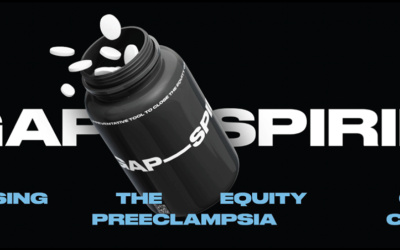
New study reports costs of preeclampsia to the U.S. healthcare system at $2.18 billion in first year
Preeclampsia Foundation Statement on AJOG Preeclampsia Report of Major Impact
Melbourne, FL – Eleni Tsigas, Executive Director of the Preeclampsia Foundation, released the following statement on the American Journal of Obstetrics & Gynecology (AJOG) report on the Short-term costs of preeclampsia to the United States healthcare system:
“In this report of major impact, the researchers have documented the short-term medical costs associated with preeclampsia. This aggregated incremental cost was found to be $2.18 billion to the U.S. healthcare system for the first 12 months after delivery – $1.03 billion in maternal healthcare costs and $1.15 billion for infants born to mothers with preeclampsia.
“Total short-term healthcare costs for preeclampsia pregnancies, in
 cluding the usual costs associated with birth, were estimated to be $6.4 billion, summed across mothers and infants for all gestational ages in the US, so the burden of preeclampsia represents more than one-third of the total costs.
cluding the usual costs associated with birth, were estimated to be $6.4 billion, summed across mothers and infants for all gestational ages in the US, so the burden of preeclampsia represents more than one-third of the total costs.
“This is the first and most comprehensive economic analysis to estimate the annual cost burden of preeclampsia for both mothers and infants within the first 12 months after delivery. Quantifying the total cost of a health problem helps demonstrate the magnitude of a problem. Preeclampsia, in particular, has been under-recognized and under-researched relative to its prevalence as a leading cause of maternal and infant morbidity and mortality.
“By underscoring the economic burden of preeclampsia, this report provides an important call-to-action for more research funding and awareness of this significant health problem, and a commitment to improving outcomes that focus on prevention, particularly for mothers.”
To read the full report, see AJOG’s Short-term costs of preeclampsia to the United States healthcare system, and editorial commentary, July 2017.
Related Articles

Congratulations on receiving your brand new Cuff Kit®! Want to learn more about how to use your iHealth Track device? Here are some handy videos and links to get you started. Unpacking and using...

Nurses play a vital role in detecting preeclampsia and caring for patient before, during, and beyond pregnancy.

A key component needed in the fight against preeclampsia is the development of tests for simple, rapid, and accurate diagnosis and prediction through the development and adoption of biomarkers.

As a first step to address the need for self-monitored blood pressure, the Preeclampsia Foundation started providing the Cuff Kit® in June 2020 to women at highest risk of developing preeclampsia and...

Every woman should be able to check her own blood pressure at home.

For more on the Preeclampsia Foundation's work to amplify all research related to biomarkers for improved prediction and diagnostic tools, please visit https://preeclampsia.org/biomarkers. INDIANAPOL...

GAP—SPIRIN campaign gets low-dose aspirin to those most at risk to help close the maternal health gap in preeclampsia ________ NEW YORK, January 23, 2025/PRNewswire/ – In recognition of...
1732072344.png)
While the Preeclampsia Foundation has been championing patient advocacy and representation for all families affected by hypertension in pregnancy throughout our 25 year history, we recognized the uniq...

Washington, DC – April 11, 2024 – On April 10, one day before the start of Black Maternal Health Week, the Preeclampsia Foundation in partnership with Thermo Fisher Diagnostics held a Hill...

Recently, I came across a social media post calling attention to the global maternal health crisis from a Black woman’s perspective. Someone responded to the post asking, “What’s rac...
